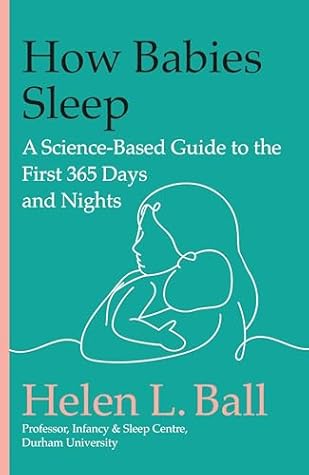More on this book
Kindle Notes & Highlights
Started reading
May 28, 2025
Over the past century and a half, in modifying the world to better suit our needs in industrializing, industrialized and now digital-era societies, we have tried to manipulate baby sleep to fit with the rapidly changing nature of adult lives. Our ideas about sleep, and particularly baby sleep, have been influenced and shaped by the socioeconomic pressures, political philosophies, religious values, academic theories and cultural ideologies that have waxed and waned during this time. The mismatch we have created between our babies’ biology and our contemporary lives has caused conflict between
...more
But human babies are also the most neurologically undeveloped of all primates at birth,13 lacking the muscle tone and neuromuscular coordination to either cling to their mother or run after her for months, never mind within hours of birth. So, our babies are precocial in most respects but are unusually helpless due to their lack of strength and coordination, unable to maintain close contact with their mother without help—a situation that makes human babies both unique and uniquely vulnerable.14 Evolutionary anthropologist Karen Rosenberg observed that the helplessness of human babies in
...more
human babies are designed to be in close contact with their mothers for warmth, safety and food, day and night.
Ethnographic accounts of Japanese sleeping habits clearly document the importance of parent–child co-sleeping for generating anshinkan (contentment, relief and security) for all participants.28
In western countries, early independence is a developmental goal to be achieved rapidly by babies, particularly at night. But most of the world’s mothers cannot imagine any other way to sleep their baby than by their side, and prolonged physical contact is a common theme in ethnographic reports of baby care cross-culturally, particularly during sleep.
Sharing infant caregiving with others, known as alloparenting, helps mothers conserve energy and stay better nourished, increasing their chances of survival and being able to reproduce again in the future. Alloparenting can be carried out by any members of a society willing to support new parents or an established family with multiple children—often such helpers are the parents’ younger siblings or the babies’ grandmothers, but grandfathers, fathers, and other village members take care of babies in different societies.
many commonly held beliefs about the treatment of babies today have their origins in the opinions of such popular Victorian-era influencers who commonly overlooked, or ignored, the biological needs of babies.
that leaving a baby to scream for hours constituted “partial deprivation.” Such actions, Bowlby argued, created an “affectionless character” who had difficulties forming relationships later in life
anthropologists set about documenting how infant care practices in western settings were outliers in comparison with other world cultures. Prominent among these practices was crying. Babies in other cultures cried much less frequently and for shorter durations than Western infants, and they were never just “left to cry,”42 although as we’ve seen this has as much to do with social organization and the availability of alloparents as infant care philosophy.
If left to their own devices on their mother’s bare torso, newborn babies will automatically progress through a predictable sequence of behaviors known as Widström’s 9 Stages, involving a birth cry, a period of relaxation, a bout of awakening, and some activity such as moving their hands and mouths, followed again by rest, some crawling or squirming up their mother’s body, familiarization with the nipple by licking and touching, suckling and finally sleeping.
A growing body of evidence on the importance of touch is beginning to explain why babies find contact and touch pleasurable, calming, relaxing and sleep promoting. The bottom line is that physical contact and touch are extremely important in helping babies to relax, and very useful tools for helping them dial down sufficiently to fall asleep.
I reassure them that if they can go with the flow, anticipate that nighttime will be fragmented for at least a few months and possibly much longer, and—where possible—ask for and accept help from family and friends when they need it, they will manage.
Ways of “managing” infant sleep are different all around the world, and exposure to different ways of doing things can offer new insights. This information can also help us understand how the science of baby sleep in Western settings has been shaped by the historical, political and cultural contexts in which it has been carried out, and how many of the misalignments between the biology of baby humans and culturally developed expectations that feed parental anxieties have arisen.
a) because the historical and cultural background of the United States (and other countries) has created a situation where adult needs are emphasized and babies are expected to comply with them from as early an age as possible; b) because the baby’s biological needs for comfort, warmth, food and safety receive minimal or no recognition in contexts where parents are expected to prioritize their roles in economic production over their roles in reproduction; and c) because the clinical specialty of pediatrics in the U.S. has been shaped by the ideals of capitalism, independence and
...more
in the early postnatal period mothers produce colostrum, which, although scant in volume (~50ml or 1.7oz on Day 1 postpartum), is important in conferring passive immunity and reducing a baby’s exposure to infections, making the early initiation of breastfeeding particularly beneficial to newborns. Growth factors in colostrum, for instance, stimulate the maturation of gastric epithelial cells (cells lining the inside of the stomach), which facilitate nutrient absorption and the development of a physical barrier to pathogens.4


